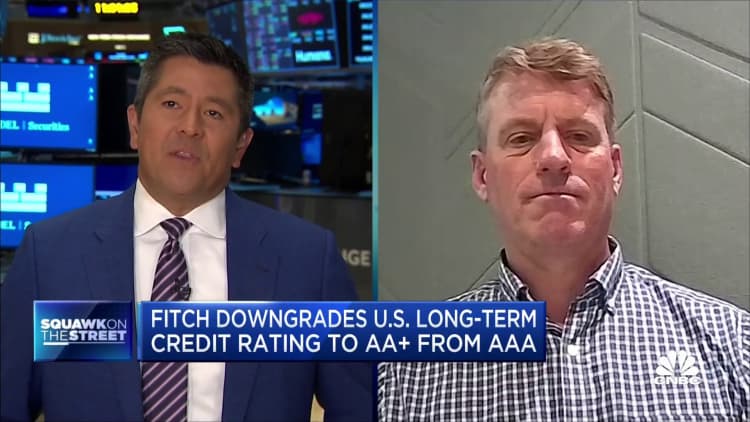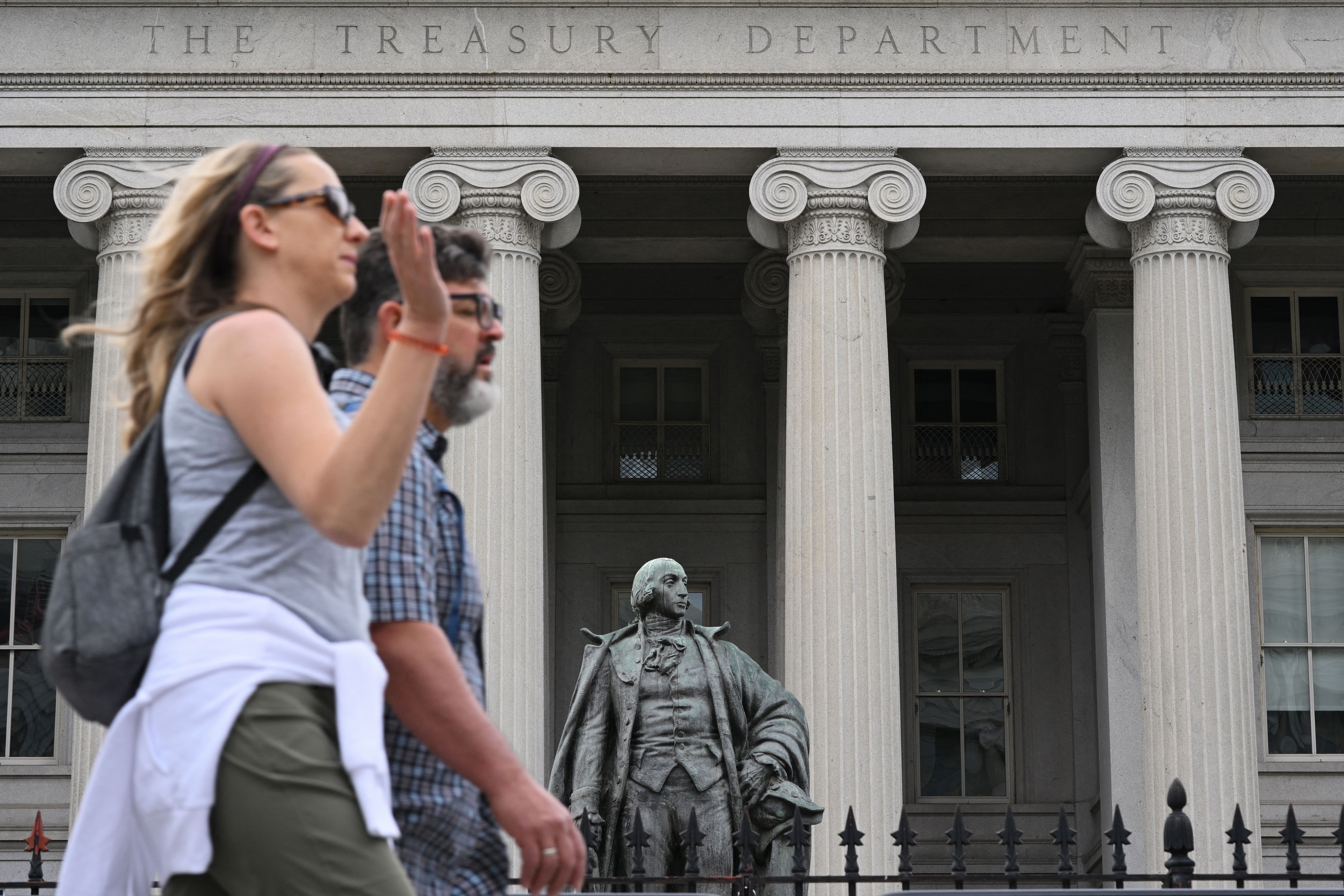The Fitch Ratings logo is seen at their offices at Canary Wharf financial district in London, Britain.
Reinhard Krause | Reuters
It’s not a growing jobs market, strong U.S. dollar or a resilient economy that will help the U.S. regain the top rating from Fitch. According to the firm, it’s going to take a major step up in governance.
Fitch Ratings cut the United States’ long-term foreign currency issuer default rating to AA+ from AAA on Tuesday, sending global stock markets down on Wednesday. The agency had placed the country’s rating on negative watch in May, citing the debt ceiling issue.
“This is a steady deterioration we’ve seen in the key metrics for the United States for a number of years. In 2007, general government debt was less than 60% and now it’s 113%, so there has been a clear deterioration,” Richard Francis, Fitch’s co-head of the Americas sovereign ratings, said Wednesday on CNBC’s “Squawk on the Street.” “Furthermore, we’re expecting fiscal deficits to rise over the next three years and we expect debt to continue to rise over the next three years.”
Francis said that, in addition to the Jan. 6, 2021 insurrection, the rating agency has noted a “constant brinkmanship” surrounding the debt ceiling among both Republicans and Democrats. That has hindered the U.S. government from coming up with meaningful solutions to deal with growing fiscal issues, particularly around entitlement programs such as Social Security and Medicare, he said.

To regain the top rating, Francis said the rating agency would watch for a long-term fiscal solution that addresses entitlement programs and for a willingness to look at the revenue, as well as the spending side, of such programs. He also said Fitch would look for a reduction of the deficit, and for the government to tackle the debt ceiling issue by suspending or getting rid of it.
“Given the high level of the debt, given the increasing deficits that we’re expecting, and given the kind of deterioration in governance and unwillingness to really tackle these issues, we don’t think that’s consistent with the AAA anymore,” Francis said.
Many reactions, from high-profile economists to the White House, have been critical or dismissive of the downgrade given the resilience of the nation’s economy.
In response to pushback, Francis said that although the economy is very important and could have an impact on the overall fiscal picture of the U.S., it will not be enough to tackle the governance issues.
“This idea that the economy somehow, we skirt a recession and there should not be a downgrade, that’s just not really what we’re looking at,” he said. “We’re looking at a more fundamental picture of the United States, creditworthiness and also kind of what we expect to happen over the next few years.”




